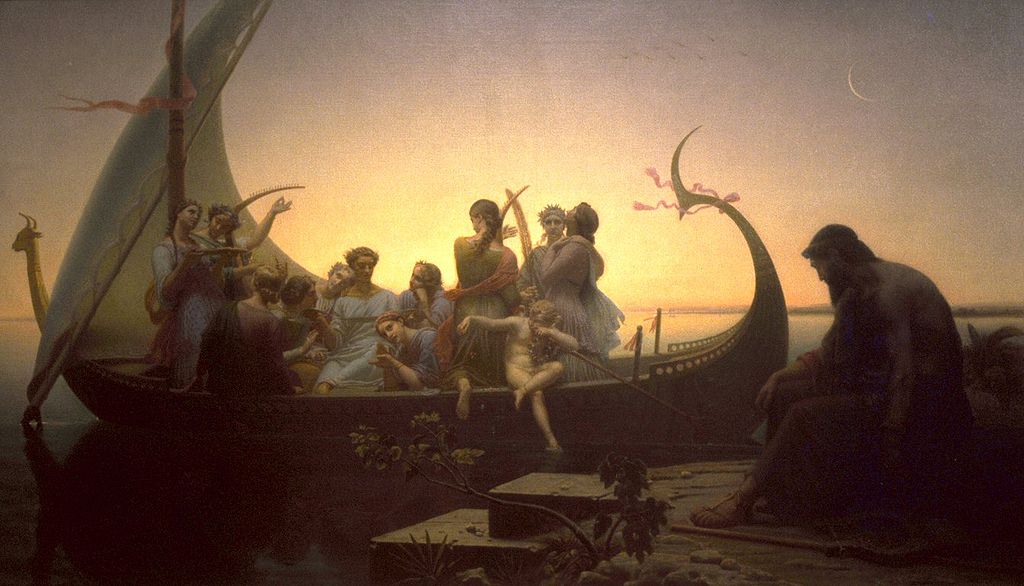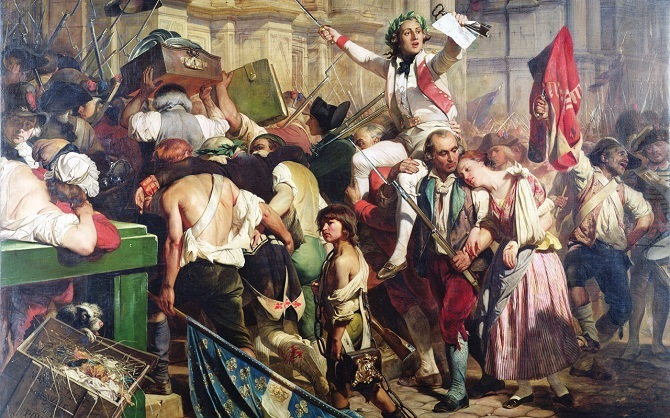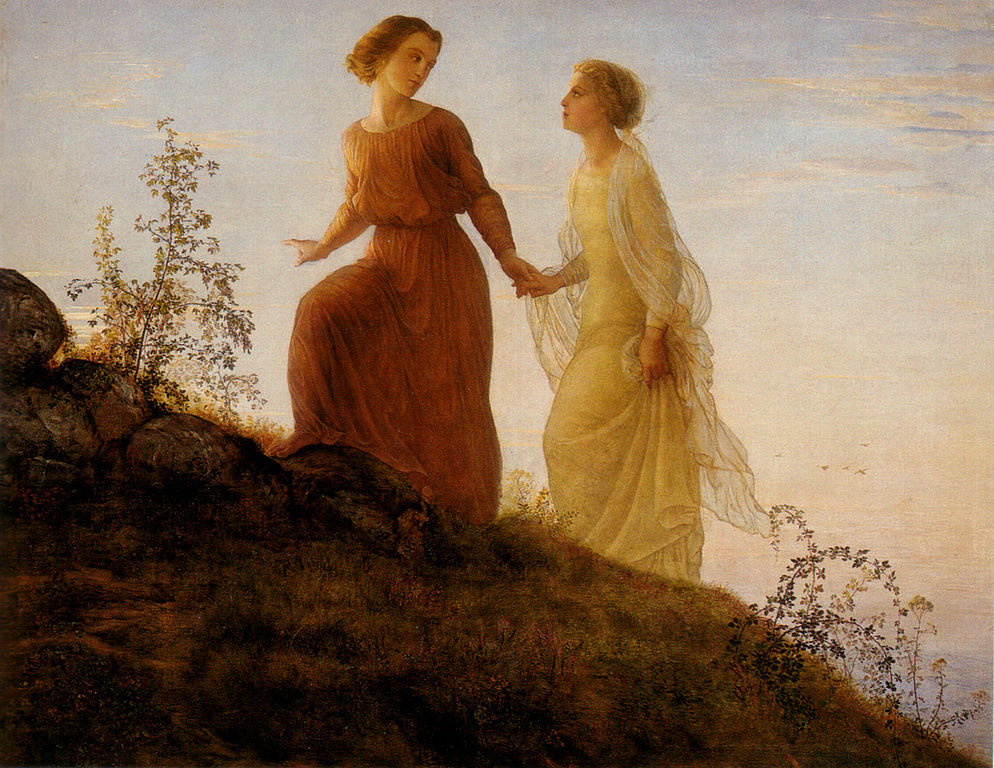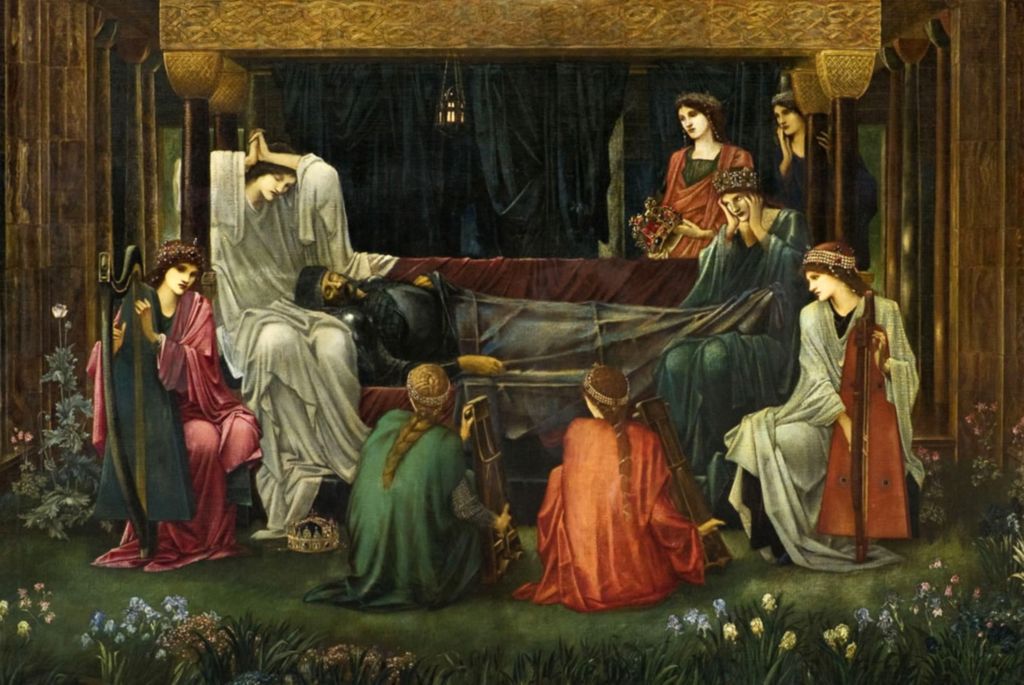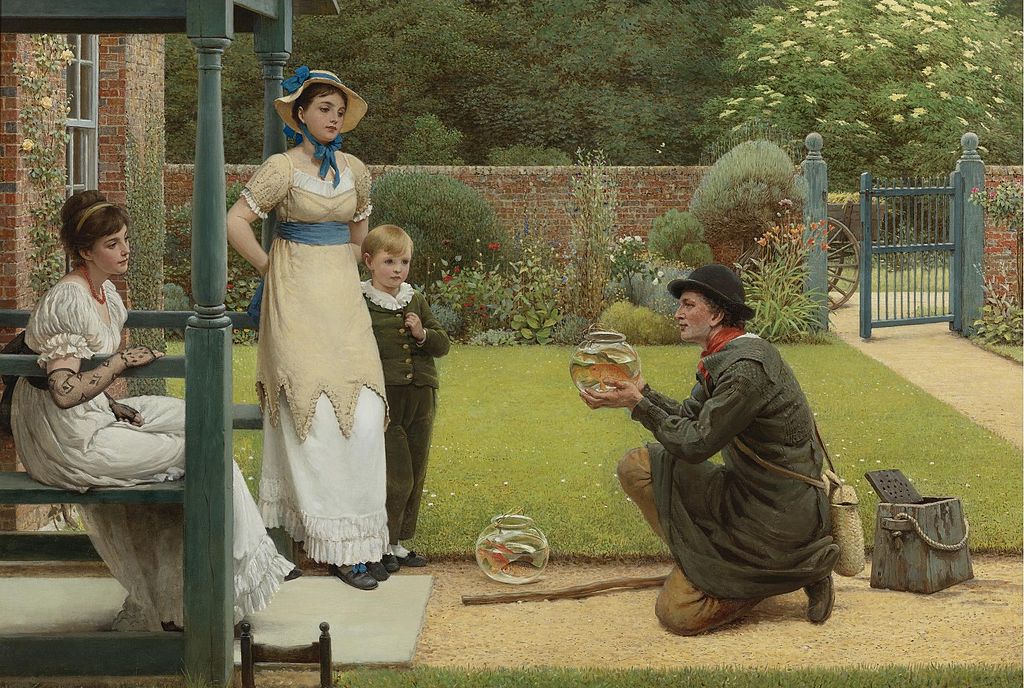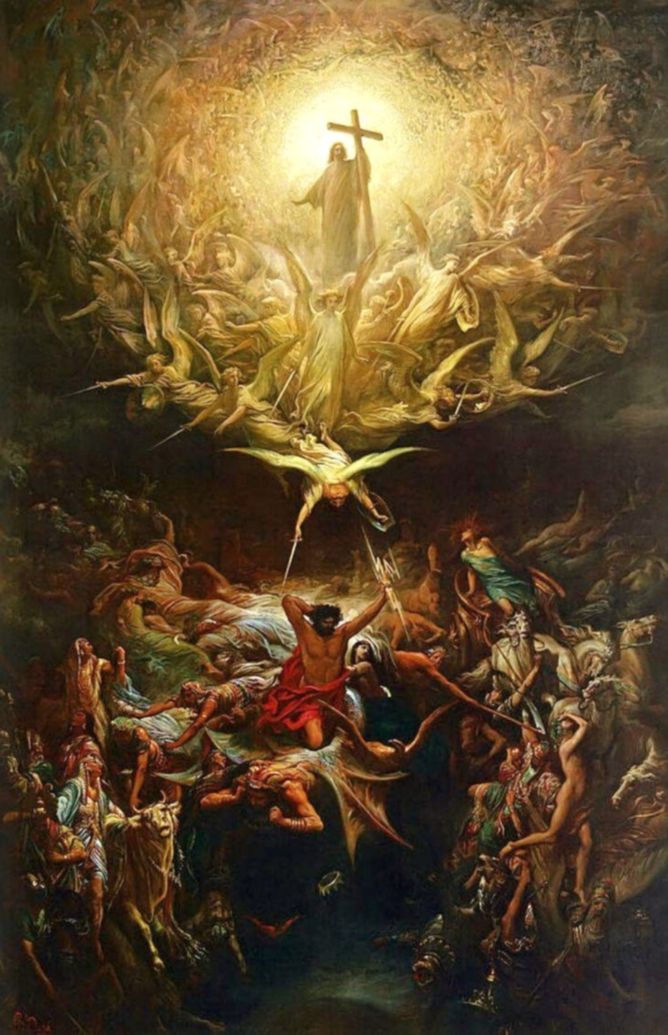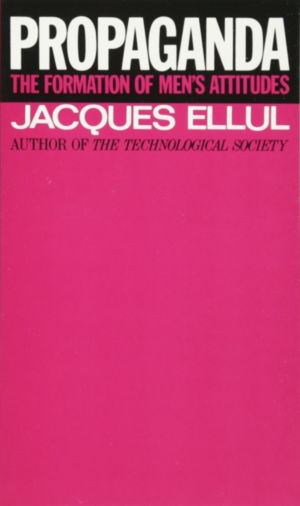In today’s world, discussion about morals is a lost art. In part, this is because stupidity is on display everywhere, and encouraged to be so, even though most people’s thoughts and opinions are less than worthless, as a glance at Facebook or The New York Times comment sections will tell you.
More deeply, it’s because America is dominated today by the nearly universal (but wholly unexamined) belief that the only legitimate principle of moral judgment is John Stuart Mill’s “harm principle” – that no restriction on human action can be justified other than to prevent harm to another.
The Righteous Mind is an extended attack on the usefulness of the harm principle as the sole way to understand and justify human morality, combined with 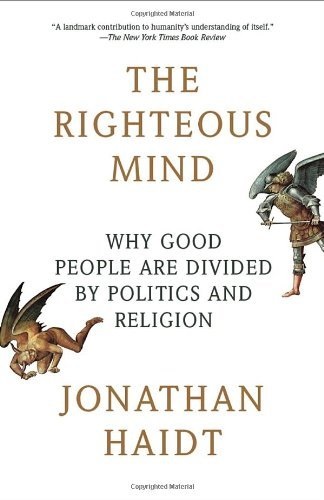 detailed explanations of the much broader ways in which people can and do view morality.
detailed explanations of the much broader ways in which people can and do view morality.
The author, Jonathan Haidt, uses this framework to understand political differences, and to plead for an increase in rationality and civility to arise from that understanding.
I am not hopeful such an increase will happen. But this book is fascinating beyond belief. For a relatively short book, it packs in a tremendous amount of insight. It is therefore difficult to review or summarize; I could spend pages discussing relatively minor matters covered in the book.
Haidt has that talent which eludes other science writers such as Steven Pinker – the ability to condense complex material without losing impact. The result is a work well worth reading.
The book is divided into three main parts. The first and third deal with how humans engage in moral reasoning, and how that affects politics. The middle part deals with, in essence, evolutionary psychology—how humans became as we are now in regard to morality, and what that implies for us today.
The first part of the book contains what is perhaps Haidt’s most counter-intuitive claim, on which the entire book rests – that the majority of moral reasoning is intuitive and pre-rational, and that the rational side of each person participates primarily to justify a conclusion already reached, which reasoning is “useful to further our social agendas.”
Haidt uses the metaphor of an elephant (intuition) and rider (reason) – mostly, the rider does what the elephant says, although sometimes the rider can guide the elephant, or at least influence him.
He begins with a captivating review of how moral psychology has been studied and viewed by academics over the past few decades.
In the 1960s through the 1990s, it was believed, following Jean Piaget and Lawrence Kohlberg, that children had no inborn moral impulses, but figured out morality for themselves through their interactions, so-called “rationalism.”
This theory believed that as children become able to see the world as others saw it, they come to understand that fairness is everything, and build their morality around metrics of equal treatment.
Moreover, as Elliot Turiel showed, children can differentiate between arbitrary and universal rules, nearly always believing that harm to others is wrong regardless of what is dictated by formal rules.
As Haidt notes, these researchers’ conclusion, that morality’s chief aim is reducing harm and creating fairness, and that any other moral judgment is imposed arbitrarily from without by societies and cultures, dovetailed precisely with the then-rising American liberal (i.e., progressive) consensus, of maximizing personal freedom without limitation or end.
This further reinforced its accuracy in the minds of its investigators, because it fit with what they personally believed.
But this science was all wrong.
These researchers fell into the trap of believing that because American children, and certain groups of Americans they studied, based their morality on fairness and non-harm, all others also did so.
Haidt relates how he personally started with the same beliefs that were popular at the time (in the 1990s), but when he started reading Richard Shweder, an expert in Indian moral psychology, and went to India for some time, immersing himself in the culture in a non-judgmental way, he began to understand that people there viewed the world very, very differently.
He began to wonder what that implied for morality – was the American view overly narrow and simplistic? At the most basic level, the difference in morality he saw was between individualistic, American-type views, and sociocentric views, “placing the needs of groups and institutions first, and subordinating the needs of individuals.”
Harm in this view is not irrelevant, nor is fairness, but they are far from the most important consideration, whereas in an individualistic culture, where society cannot make any non-harm based demands on its individual members, it is the only thing that matters.
Individualism basically came on the scene during the Enlightenment and only in the West; the rest of the world is still primarily sociocentric.
Beginning to see this, Haidt spent the next years conducting ever larger studies, among a variety of cultures and classes, to see what the moral views were of people in hypothetical scenarios, some of which involved harm, and some of which involved other possible moral principles, such as loyalty and purity.
He began to realize that it is simply false that children create morality for themselves out of the harm principle; instead, they have certain innate impulses, which are guided and enhanced by learning from the culture in which they grow up.
There are many more innate impulses than mere avoidance of harm to others (which is also innate, not formed by rational thinking, contrary to Piaget and Kohlberg) and there is a complex relationship between those impulses and culture.
Haidt then turns back to a history lesson, starting with Plato’s Timaeus and looking at various ways we have viewed the relationship among mind, reason, and morality. He discusses Hume, Jefferson, and most importantly for his book, Darwin.
Haidt notes how in the mid-twentieth century, the idea that there was any native, or inherent, element to human nature became toxic, leading to the demand that all right thinking people reject that human nature exists, with the necessary conclusion that morality is purely the result of reasoning, with no innate component.
He discusses how ideology was used to suppress those who thought otherwise, such as Edward O. Wilson, excoriated for daring to challenge the scientific consensus, but rehabilitated today.
Over time, as evidence built up to the contrary, this monolith eroded, and an inherent human nature became recognized (though it is still denied in some quarters).
For Haidt’s purposes, the crucial element of this realization was that various experiments showed that intuitions were critical to moral conclusions, with reasoning playing second fiddle: “Moral reasoning was mostly just a post hoc search for reasons to justify the judgments people had already made.”
We “see-that” before “reasoning-why.” We do this not to tell ourselves why we believe something, but, for evolutionary reasons, to “find the best possible reasons why somebody else ought to join us in our judgment.”
It is important to realize that intuitions are not irrational, they are a type of cognition, not inherently of less worth than abstract reasoning.
And, most critically, if you want to convince others you have to address their intuitions, not their reasoning, since the former comes first, and for the most part trying to address their reasoning is like addressing the rider where the elephant is actually in control.
In fact, people who don’t make moral judgments this way, who instead use pure reason, are psychopaths, incapable of normal human interaction. (Almost all psychopaths are men, Haidt mentions – throughout the book, although he does not emphasize it, it is obvious that Haidt views men and women as far from interchangeable, probably for the evolutionary reasons he stresses in other contexts).
Finally, in this section, Haidt demonstrates through the results of experiments that many of the reasons we state for believing as we do are social in nature – designed to enhance our popularity, justify ourselves to others, justify ourselves to ourselves, engage in confirmation bias, and, critically, find reasons that result in actions benefiting not just us but our group—all just like a politician, although here Haidt is not making specific political claims.
Our stated reasons are largely manufactured to accomplish these goals after we have already concluded our moral judgments.
This implies, among other things, that we cannot get good behavior by rationalism; that philosopher kings are not going to be more moral than anyone else; and that teaching ethics is worthless (which I have long believed, so I am sure Haidt is correct) – we should instead be conditioning intuitions.
So Haidt, in the second part, turns to the specifics of those innate intuitions. More specifically, he sets out to prove given that morality is largely based on intuition, that those intuitions are much more, and much broader, than the harm and fairness intuitions that are the sole focus of “modern secular Western morality.”
Haidt’s objection is not that the harm principle, in particular, is unjust or wrong, but that any moral theory resting on a single principle is not in keeping with how people really view morality, and therefore both are largely useless as an explanation and overly constraining as a hortatory method.
“Modern secular Western morality” is what Haidt also calls (following a group of cultural psychologists), WEIRD morality, where the acronym stands for “Western, educated, industrialized, rich, and democratic.”
“WEIRD people are statistical outliers; they are the least typical, least representative people you could study if you want to make generalizations about human nature.” They “see a world full of separate objects, rather than relationships.”
In other words, most people, and nearly all of the rest of the world, have totally different moral intuitions, and therefore moral concerns, from what we are told by the dominant voices in the West are universal intuitions and concerns.
WEIRD morality is “blind” to the concerns of others. (You’d think those obsessed with “multiculturalism” would welcome this conclusion, but you’d be wrong—liberals hate this conclusion, since it denies the primacy of autonomic individualism, a higher good.)
When he realized this, Haidt had a “red pill moment,” where he “stepped out of the matrix.” He realized, of himself and his fellow liberals: “We never considered the possibility that there were alternative moral worlds in which reducing harm (by helping victims) and increasing fairness (by pursuing group-based equality) were not the main goals.”
The remainder of this long section is devoted to expanding the foundations of moral judgments beyond harm and fairness (clarified as pairs of opposites, “care/harm” and “fairness/cheating”) to include four others: “loyalty/betrayal”; “authority/subversion”; “sanctity/degradation”; and “liberty/oppression.”
Again, it is hard to do justice to the incisive and insightful nature of this analysis. Suffice it to say that Haidt is correct, and once you view questions of morality, and of individuals’ views of morality, through this framework, rather than being confined in the straitjacket of mere harm and fairness, you understand what drives people much more than you did before.
Haidt emphasizes that these six ways of viewing the world (and perhaps others) are innate – not in the sense of being wholly predetermined, but in the sense of being “organized in advance of experience” – a “first draft” inherent in each person when born.
Those traits lead people along different paths, often reinforcing their inherent characteristics, though not always.
He notes repeatedly how, as with so many claims later proven wrong, a scientific “consensus” insisted until the 1990s that each person was a blank slate, but that has been proven definitively false.
All six foundations, Haidt believes, originated in evolutionary behaviors, which he identifies for each, but that does not make any one, or any set of them, more or less valid than another.
They all operate simultaneously in each human being. And they are all necessary for a good society: “…moral monism – the attempt to ground all of morality on a single principle – leads to societies that are unsatisfying to most people and at high risk of becoming inhumane because they ignore so many other moral principles.”
Of course, as will be obvious upon a moment’s reflection, and as Haidt explains, liberals draw their conclusions by relying on only three of these foundations (care, fairness and liberty), and often only two (fairness easily gives way to liberty, if oppression is thought to be present).
Haidt is himself liberal, and he admits his original personal response to these insights was to try to aggressively put them to use to help Democrats win elections (John Kerry’s election, to be specific).
His concern, then and now, was that since most conservatives (he identifies libertarians as very closely allied to liberals in their moral judgments, so here and elsewhere he means Burkean conservatives) rely more-or-less equally on all six foundations, their appeal is broader than the liberal appeal, which only offers something to a subset of the population.
Although he mentions Edmund Burke, Haidt’s exemplar of a conservative is not Burke. He also mentions other relevant thinkers, such as, Thomas Sowell (who invented the terminology of the “constrained vision” of human capacity, on which Haidt in part relies to characterize conservatives), and Robert Nisbet (the originator of modern conservative theories of community). But he relies on neither one.
Instead, Haidt chooses someone more obscure – the turn-of-the-century French sociologist Emile Durkheim, the polar opposite of John Stuart Mill.
Among other things, Durkheim believed in the centrality of the family and the critical importance of a society consisting of networked, overlapping groups, in which the individual as individual played little role.
He is Haidt’s exemplar of a conservative, fully realized in the sense of relying on all six of Haidt’s foundations of moral judgment, and Durkheim reappears repeatedly in the second half of the book.
While religion is the focus of a fair bit of discussion, it is all about the evolutionary value of religion. But the reader is left with the lurking feeling that much of what Haidt ascribes to evolutionary pressure, to the “first draft” of intuition, is in fact the latent Christianity that is the utterly dominant moral backdrop of the West, even now.
It may be true, for example, that human beings have an innate sense that others should not be unduly harmed, or that oppression is bad. (Haidt ascribes these to the evolutionary motives of keeping children safe and “a response to adaptive challenge of living in small groups with individuals who would, if given the chance, dominate, bully, and constrain others”—but when weapons were developed, could be resisted).
But our interpretation of our intuition, the second draft made after the first draft of intuition, flows purely from Christianity, and it is hard to distinguish where one ends and the other begins.
To non-Christian cultures, for example, the Golden Rule is either unimportant or insane. Nobody has an innate urge to obey it.
The much more usual moral judgment of “care/harm” is that of the Roman dictator Sulla, who wrote as his epitaph, “No friend ever served me, and no enemy ever wronged me, whom I have not repaid in full.”
This suggests that Haidt’s project of reclaiming some agreement on moral issues through better understanding others is doomed, since if it is true that what understanding we have relies largely or wholly on latent Christianity, as that disappears what agreement we have is likely to disagree as well.
As to the validity of Mill’s harm principle as the touchstone of moral judgment, we can do no better than examine the braying of progressive philosopher Martha Nussbaum.
Although Haidt does not mention her, she is in many ways the anti-Haidt. A large part of her recent career has revolved around her exaltation of the harm principle as the sole valid method of moral judgment, and the rejection of disgust, or what she claims to be disgust, as well as sanctity, as invalid.
She has become famous for this, mostly because her positions conveniently fit right into the Zeitgeist, in that she claims all traditional morality, especially sexual morality, is to be rejected in favor of total individual liberty, the holy of holies of modern progressivism.
Although I have not read her 2010 book From Disgust to Humanity, by all accounts its reasoning is exactly what Haidt finds most disturbing, and most cluelessly narrow.
Her book is an extended attack on any moral judgment that cannot be justified adequately to Nussbaum on the exclusive ground of Mill’s harm principle, and most especially on any moral judgment that depends in any way on a decision regarding sanctity or purity (i.e., in her mind, on moral judgments that are the opposite of “Humanity”).
Nussbaum further discovers a Constitutional imperative to enshrine in law her beliefs and way of looking at morality, which would have surprised any American jurist prior to 1950, and something Haidt, with his plea to understand and value all the different bases for moral judgments, doubtless finds troubling.
But that, of course, is why Nussbaum is so widely praised—she offers apparent intellectual cover for WEIRD individuals to write their preferences into law in a way that cannot be appealed and cannot be legislated against by the majority who still honor the morals of sanctity.
Presumably somewhere in her work Nussbaum enunciates why she believes the harm principle is the only moral criterion that can be permitted to exist; no doubt, her argument relies on assertions that only it is “rational.”
But as Haidt shows, this is just the result of a parched inability to understand human beings, and a rejection of the cognitive function of intuition – which is why Nussbaum and her many allies are, though they don’t realize it, on the wrong side of history.
The third part of the book focuses on why these intuitions developed from a Darwinian perspective, and in particular on “group selection” – behaviors in groups, especially moral behaviors, and why Haidt believes they developed, namely in order to confer evolutionary advantage on a group level.
This is another view that until recently was an utter heresy against the scientific consensus, and it is also the view that causes Haidt to attack the New Atheists (Dawkins, Harris, etc.) as blinkered and ignorant, for refusing to see the obvious truth that religion confers group advantages, especially “cooperation without kinship,” and is not a negative “parasite” or “virus.”
Haidt himself is an atheist, so this is in a sense an intra-atheist dispute. And his definition of religion, following Durkheim, is “a unified system of beliefs and practices relative to sacred things,” in order to create a community.
This definition is broader than revealed religion, and could easily include, for example, the belief system of modern liberals and their institutions sometimes called the “clerisy” or the “Cathedral” – but that’s a topic for another day.
Here also Haidt veers into brief discussions of evolutionary genetic change in the recent human past (he believes it can and did happen, and continues to happen, but avoids excessive exploration, presumably so as not to get into the disputes that have embroiled Gregory Clark and Nicholas Wade, although he cites the latter several times).
As the reader can see, Haidt relies heavily on evolutionary explanations. I have always been skeptical of evolutionary explanations for human characteristics – as Haidt acknowledges, they often shade into “just so” stories.
Even if these explanations are true, or largely true, Haidt’s six foundations of moral intuitions do not explain many related areas of human nature. For example, why do people seek transcendence? But perhaps explaining everything is too much to ask, and what Haidt does explain is plausible enough.
Haidt’s ultimate evolutionary conclusion is that humans are a unique combination of mostly chimpanzee with a little bee – we are mostly self-interested individuals willing to form groups, but sometimes willing to be “ultrasocial” (his term for human eusociality) and make sacrifices for the group as a whole, in ways chimpanzees never would (apparently chimpanzees can’t even agree to carry a log together, not ever, or engage in any other behaviors Haidt calls “shared intentionality”).
“We evolved to live in groups,” which implies that an ethic of extreme individuality, as the WEIRDs would run society, goes against the grain of human nature.
Community is critical to human flourishing: “When societies lose their grip on individuals, allowing all to do as they please, the result is often a decrease in happiness and an increase in suicide, as Durkheim showed more than a hundred years ago.”
In other words, our society today exhibits “anomie—Durkheim’s word for what happens to a society that no longer has a shared moral order.”
Again, I am not doing justice to the volume of information and analysis contained in these pages, which manages to be both extremely dense and very readable, sweeping in everything from Aztec use of hallucinogens to Ralph Waldo Emerson.
Haidt ends with a series of political analyses. He offers two conclusions unpalatable to liberals – that conservatives are stronger politically, because as noted above their political offerings resonate with the moral frames of more people, and that conservatives are mostly right in their approach to human nature and its political implications.
Haidt says that liberals, in fact to their detriment, typically are unable to understand conservatives, because their own moral framework is relatively limited, such that they retreat, when confronted with incomprehensible opposing beliefs, into the belief that conservatives are inherently evil.
For example, liberals are far less able than conservatives to take a survey of moral beliefs and successfully pretend to be of the other political persuasion; they totally fail to grasp how and why conservatives really think, to a much greater degree than conservatives of liberals.
This is not without consequences. In fact, sometimes, as Haidt explicitly notes, liberals react to their incomprehension with the belief that conservatives should be “exterminated” – a belief not found among conservatives about liberals. (Apparently conservatives are wise to keep buying guns).
Haidt clearly struggles with his own self-image as a progressive, while being forced by his scientific analysis to admit the possibility that “conservatives [might] have a better formula for how to create a healthy, happy society.”
This is probably why he has been accused of being a crypto-conservative – not only because he attacks liberal pieties that traditionally go wholly unchallenged, but he goes even farther and seems to substantively edge toward endorsing actual conservative beliefs, by openly praising Durkheim, Burke, and the accretion of “moral capital.”
In his point-counterpoint, it’s conservatives who have something to offer everyone, and liberals/libertarians who have a pinched, unproductive, unrealistic view of the world.
Thus, he calls for understanding opposing viewpoints, but offers opposing viewpoints that are not opposite and equal. He says the “liberal wisdom” that conservatives should accept boils down to some regulation being good, and that corporations should be restrained.
But conservatives would not much dispute those two modest propositions; many would applaud the latter, especially today.
Then Haidt offers “conservative wisdom” that is vastly broader and more generally applicable: “You can’t help the bees by destroying the hive,” in which Haidt offers a full-throated defense of Burkean “little platoons” in opposition to emancipation of the individual, and of “Durkeheimian utilitarianism,” exemplified by when “Adam Smith argued similarly [to Burke] that patriotism and parochialism are good things because they lead people to exert themselves to improve the things they can improve.”
These are vastly broader propositions than modest regulation and corporate controls; they are entire visions of the good and human society, and if this is “conservative wisdom,” it is of massively greater import than the “liberal wisdom” Haidt offers.
Compounding his offense, Haidt piles on, among other things citing Robert Putnam to the effect that even if liberals claim to “stand up for victims of oppression and exclusion,” since they ignore important moral foundations such as loyalty and authority, their “zeal . . . . often lead[s] them to push for change that weaken groups, traditions, institutions and moral capital.”
In other words, liberals erode, if not destroy, society.
Two examples Haidt gives are liberal devastation of the African American family (as a result of the elimination of sanctity as a moral imperative) and increasing racism among Hispanics, resulting from pushing multicultural education (by over-exalting freedom from supposed oppression).
Just like Mark Lilla, Haidt has no use at all for celebrations of multiculturalism and diversity, nor, presumably, for “inclusion” as that word is used today, the celebration of the abnormal and corrosive, and the violent suppression of the normal and traditional.
He advises, “Don’t call attention to racial and ethnic differences; make them less relevant by ramping up similarity and celebrating the groups’ shared values and common identity. . . . You can make people care less about race by drowning race differences in a sea of similarities, shared goals, and mutual interdependencies.”
In passing, Haidt destroys other liberal shibboleths, such as the primacy of emancipation from all authority, noting that “authority should not be confused with power” and “authority ranking relationships are based on perceptions of legitimate asymmetries, not coercive power; they are not inherently exploitative.”
Or, “Societies that forgo the exoskeleton of religion should reflect carefully on what will happen to them over several generations. We don’t really know, because the first atheistic societies have only emerged in Europe in the last few decades. They are the least efficient societies ever known at turning resources (of which they have a lot) into offspring (of which they have few).”
To say that all this is wildly offensive to most of today’s American progressives would be a gross understatement.
Of course, Haidt’s work opposes much conservative thought.
He rejects the truth of both any religion and anything such as natural law – morality may be based on innate intuitions, and human nature exists, but that does not imply that there is a deeper law, much less a law set by God. Humans have no teleology; Darwin exists in a vacuum.
Still, it would be valuable to try to apply Haidt’s framework to a variety of issues, though I won’t do so here. What of guns? Or global warming?
Abortion, for example, can be viewed in different ways depending on the external information used to inform innate impulses. Thus, in any abortion debate, care/harm is a critical question – but whose? That of the unborn child? The mother? Both? In what proportion?
Haidt, of course, doesn’t claim that his framework answers all moral questions – his claim is much more limited, that people approach moral questions in a definable way with certain common characteristics among all people, but with key differences as well, and that understanding this truth makes it possible both to discuss political matters with others and, up to a point, attempt to influence them in more productive ways than might otherwise be possible.
Haidt begins this book by quoting Rodney King, “Can we all get along?”
Since he wrote this book, in 2012, Haidt has become perhaps the most prominent liberal voice today in America calling for both a concerted effort to increase civility in political discourse, by using the frames he presents in this book, and by also calling for the toleration of conservatives in the academic world.
His linking of these things pretty clearly shows that he thinks that most narrow-mindedness, at least among elites, is on the liberal side.
He has been thinking this for a while; this theme can be seen in his modestly famous keynote speech at the 2016 annual meeting of the American Psychological Association, and in his more recent founding of a group, Heterodox Academy, explicitly devoted to reducing ideological persecution of conservatives in the academic world.
These are honorable and valuable goals, though I suspect the answer is “No, we can’t all get along,” and both Haidt’s analysis and events in the past six years support that answer.
Just because people of good will want others with hugely divergent moral visions to see everybody’s point of view does not mean that those people can live together in harmony, or even peace.
That’s too bad, but at least when we’re manning the barricades, if we’ve read this book, we’ll understand the people storming them better than we would have otherwise.
Charles is a business owner and operator, in manufacturing, and a recovering big firm M&A lawyer. He runs the blog, The Worthy House.
The photo shows, “The Conquerors of the Bastille in Front of the City Hall, 14 July 1789,” by Paul Delaroche, painted 1830-1838.
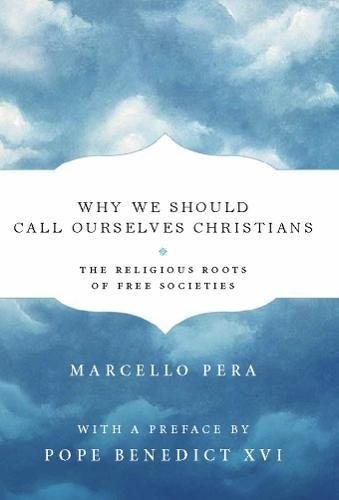 came out in 2011, it is worth revisiting, because it has much to teach us, since the tension between Christianity and naturalism is only accelerating.
came out in 2011, it is worth revisiting, because it has much to teach us, since the tension between Christianity and naturalism is only accelerating.